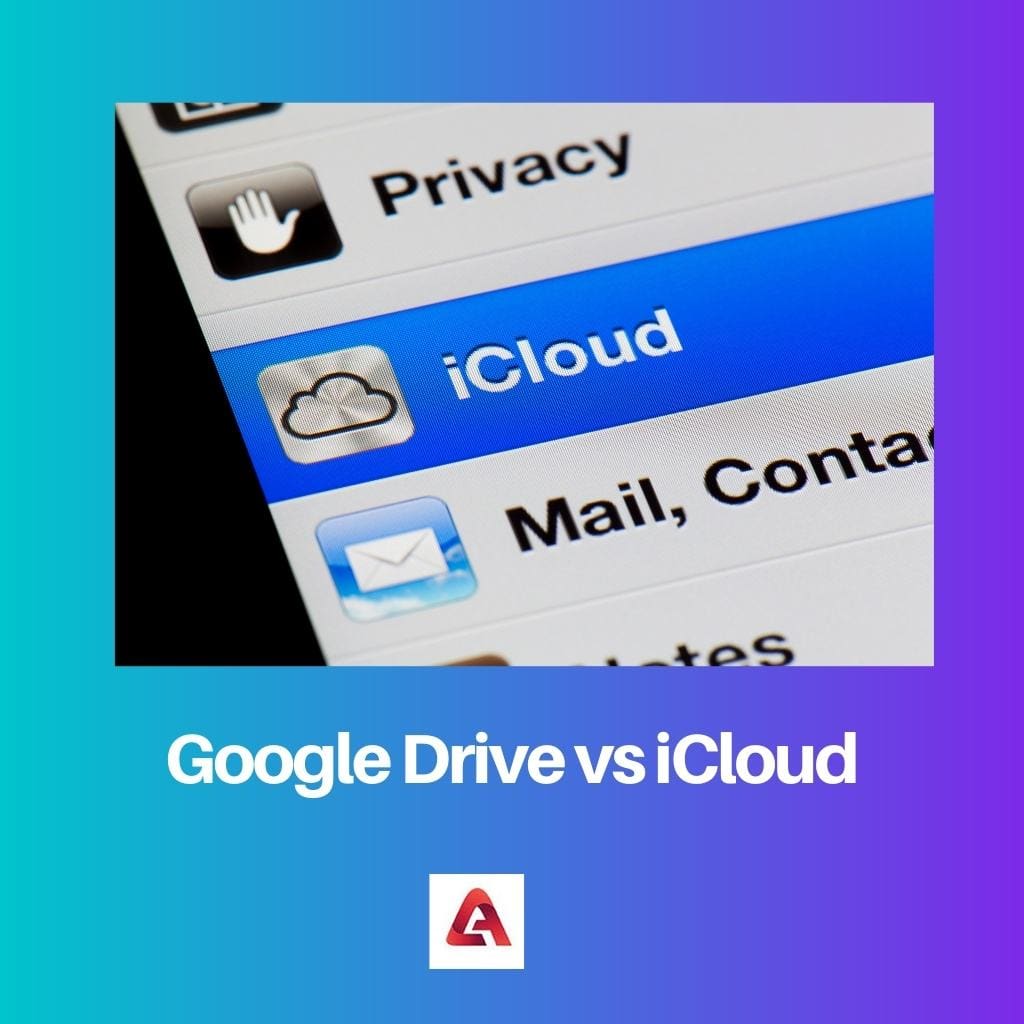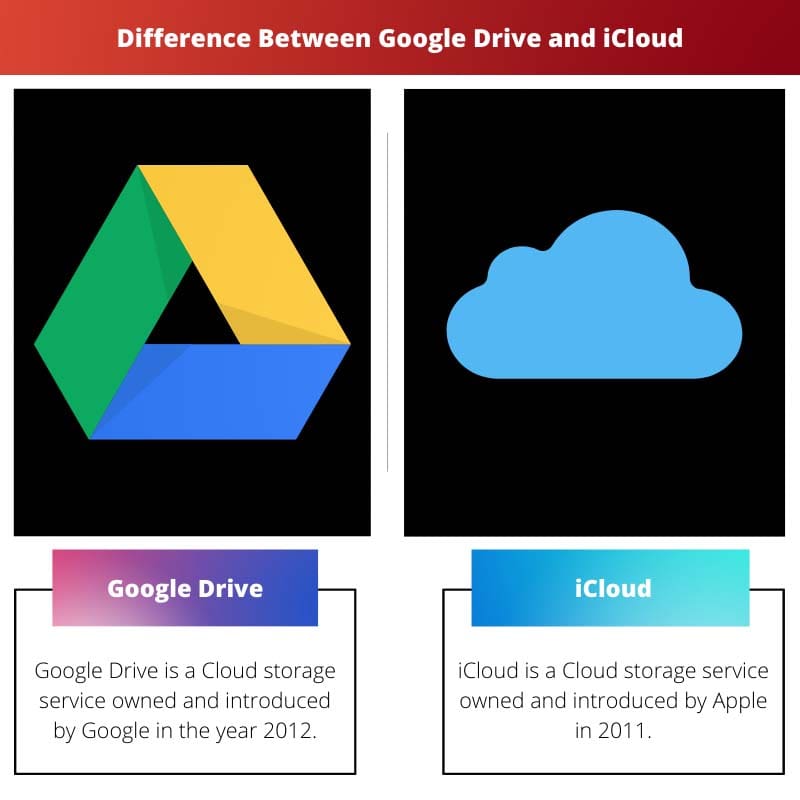With time, people’s dependence on cell phones and other in-hand gadgets keeps growing. Everyone is moving towards portable devices at a fast-forward rate.
With the usage of a device comes the necessity of storing data. And nothing is better than the Cloud storage method in this case! It is cost-effective as well as a user-friendly storage method.
Many people find cloud storage very comfortable and prefer the same over other conventional storage methods.
Cloud storage is a method of data storage that allows the data to be stored in logical pools, i.e., the Cloud. The data is stored digitally and can be accessed through cell phones, desktops, laptops or any other used gadgets.
People and companies also have a facility to buy or rent additional storage capacity in cloud storage if needed. This makes the whole process of data storage more convenient and user-friendly.
Google Drive and iCloud are two such services of Cloud storage. These are believed to be two of the most used and biggest cloud storage services.
Both provide a way to access data or files from various devices and come to the user’s rescue in case of data storage failures.
Key Takeaways
- Google Drive is a cloud-based storage and collaboration service offered by Google, while iCloud is Apple’s cloud-based storage and synchronization service.
- Google Drive offers more storage space for free and is more widely used across platforms, while iCloud offers tighter integration with Apple devices.
- Google Drive has more collaboration features, while iCloud focuses on personal data storage and synchronization.
Google Drive vs iCloud
Google Drive is a cloud storage service offered by Google, which allows users to store and share files like photos and videos, offering 15GB of free storage space. iCloud is a cloud storage service offered by Apple, primarily designed for Apple devices, offering 5GB of free storage space.

Comparison Table
| Parameter of Comparison | Google Drive | iCloud |
|---|---|---|
| Launch | Google Drive was launched in the year 2012. | iCloud was launched in the year 2011. |
| Ownership | Owned and managed by Google LLC. | Owned and managed by Apple Incorporation. |
| Free storage | The free storage space offered by Google Drive is 15GB. | Whereas the free storage space offered here is only 5GB. |
| Availability | Google Drive has app support in Android along with Windows, iOS and Mac OS. | While iCloud is only available for iOS and Mac OS. It has no app support for Android. |
| Pricing | Additional storage of 50GB can be bought at once, and it is costlier. | Additional storage of 100GB can be bought at once. The cost is comparatively lower. |
| Paid storage | Paid storage space is limited to 30TB. | While it can provide paid storage space of only 2TB at maximum. |
| File size | The file size can go up to a maximum of 5TB. | Here, it is only 50GB. |
| Bandwidth limitation | There is no bandwidth limitation set on Google Drive. | Whereas iCloud has bandwidth limitations, i.e., 200, 400 or 600 per month. |
What is Google Drive?
Google Drive is a Cloud storage service owned and introduced by Google in 2012. It allows users to store documents and media files on Google servers and access them from any device they want.
Google Drive syncs photos, music, documents etc. and stores them so that they can be accessed when needed.
It even provides a free storage space of 15GB, and an additional paid storage option is available, which can be extended up to 30TB.
In addition, it provides the user with the convenience of creating documents, sharing files and editing them.
It is one of the most widely used cloud storage services, with many features.
Google Drive is optimized and pre-installed on Android devices or can be installed easily via the Play Store.
Moreover, it is also available on iOS, Windows and Mac OS. It can also be managed easily through the Files app available.
Furthermore, Google Drive has yet another feature introduced, i.e., Quick Access. It is a machine-learned program that helps predict the file a user wants to open and provides recommendations based on that.

What is iCloud?
iCloud is a Cloud storage service owned and introduced by Apple in 2011. It works as a locker that automatically synchronizes the user’s data across all the devices where iCloud is used.
More accurately, iCloud is a collection of tools that helps manage mobile devices and others. Like Google Drive, it allows a backup of photos, music, documents etc.
It provides a free storage space of 5GB, and an additional paid storage option is available, which can be extended up to 2TB. An iCloud account can be created on any Apple device.
iCloud is available by default on all iOS and Mac OS devices. Even Windows users can download iCloud and can use it on a PC. Sadly, there is no native iCloud app support for Android devices.
Still, it has a web app where Android users can sign in and manage their content. But it somehow fails to function accurately on mobile browsers.
As Apple keeps expanding the capabilities and features of iCloud, it becomes difficult to dictate an effective means for forensic accession of data and its effect on the original file data.

Main Differences Between Google Drive and iCloud
- Google owns Google Drive, whereas Apple owns iCloud.
- Free storage space offered on Google Drive is more than iCloud.
- Google Drive is available on every type of device, whereas iCloud does not have app support for Android devices.
- Cooperatively, iCloud is less costly than Google Drive when buying additional storage.
- The maximum file size in Google Drive is 5TB, while that of iCloud is only 50GB.
- Google Drive has an additional paid storage option of up to 30TB, but in the case of iCloud, it is only 2TB.
- iCloud has a bandwidth limitation set, whereas Google Drive has no such limitations.





